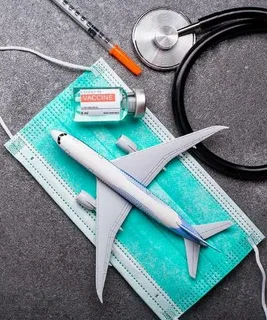Traveling to new destinations can be an exciting adventure, but it also comes with certain health risks. From tropical diseases to routine infections, protecting yourself before departure is essential. Safe travels start here: understanding the world of travel immunizations is your first step toward a worry-free journey.
Why Travel Immunizations Matter
Travel immunizations are vaccines recommended for individuals visiting specific countries or regions. They help prevent diseases that may not be common in your home country, such as yellow fever, typhoid, or Japanese encephalitis. The importance of these vaccines cannot be overstated—they safeguard your health and the health of those around you.
Some travelers may assume routine vaccinations are sufficient, but additional immunizations can be crucial depending on your destination, duration of stay, and activities planned.
Common Travel Vaccines
There are several vaccines frequently recommended for international travelers:
- Hepatitis A and B: Spread through contaminated food, water, or bodily fluids.
- Typhoid: Often contracted through food or water in certain countries.
- Yellow Fever: Required for entry to some African and South American countries.
- Japanese Encephalitis: Recommended for extended stays in rural Asia.
- Rabies: Important for travelers in areas where animal bites may occur.
Discussing your travel plans with a healthcare professional helps ensure you receive the vaccines best suited to your journey.
How to Plan for Immunizations
Planning ahead is essential because some vaccines require multiple doses over weeks or months. Here’s a simple guide to help:
- Consult a Travel Health Specialist: Ideally, 4–6 weeks before departure.
- Review Your Medical History: Certain vaccines may not be suitable if you have underlying health conditions.
- Understand Vaccine Schedules: Some vaccines require booster shots to ensure full protection.
- Keep Records: Carry an updated immunization record while traveling; some countries require proof of vaccination.
Remember, safe travels start here: understanding the world of travel immunizations is not just about checking boxes—it’s about proactive planning for your health.
Staying Healthy Beyond Vaccines
While immunizations are crucial, other preventive measures also play a key role in safe travel:
- Practice good hand hygiene.
- Drink bottled or purified water in areas with unsafe water.
- Use insect repellents and protective clothing.
- Avoid risky foods or undercooked meals.
Combining vaccines with these precautions ensures a safer and more enjoyable travel experience.
Conclusion
Travel can be an enriching and life-changing experience, but it comes with responsibilities—your health being paramount. By prioritizing vaccines and understanding the world of travel immunizations, you minimize risks and maximize peace of mind. Truly, safe travels start here: understanding the world of travel vaccinations, giving you the confidence to explore new horizons safely.



